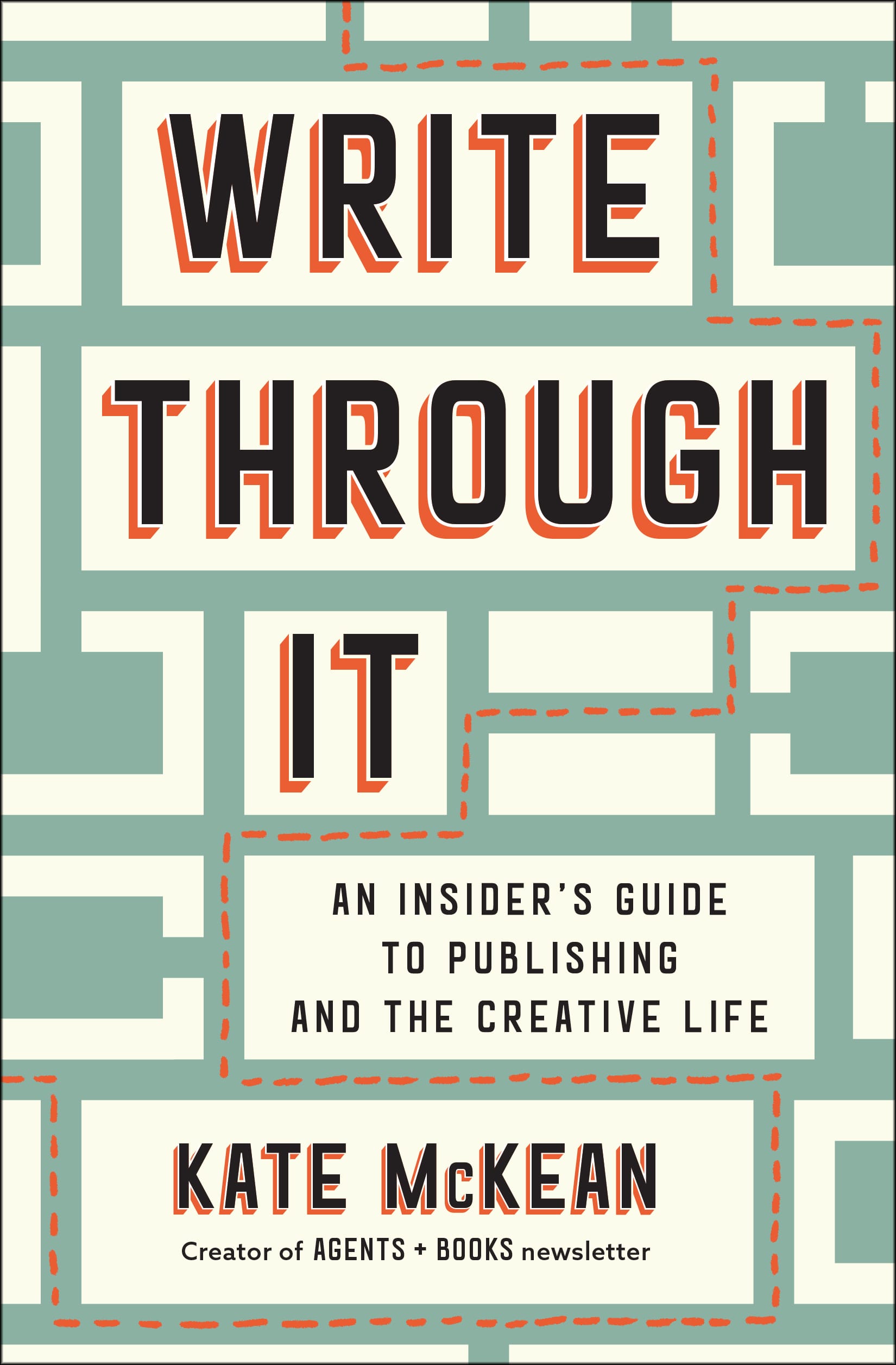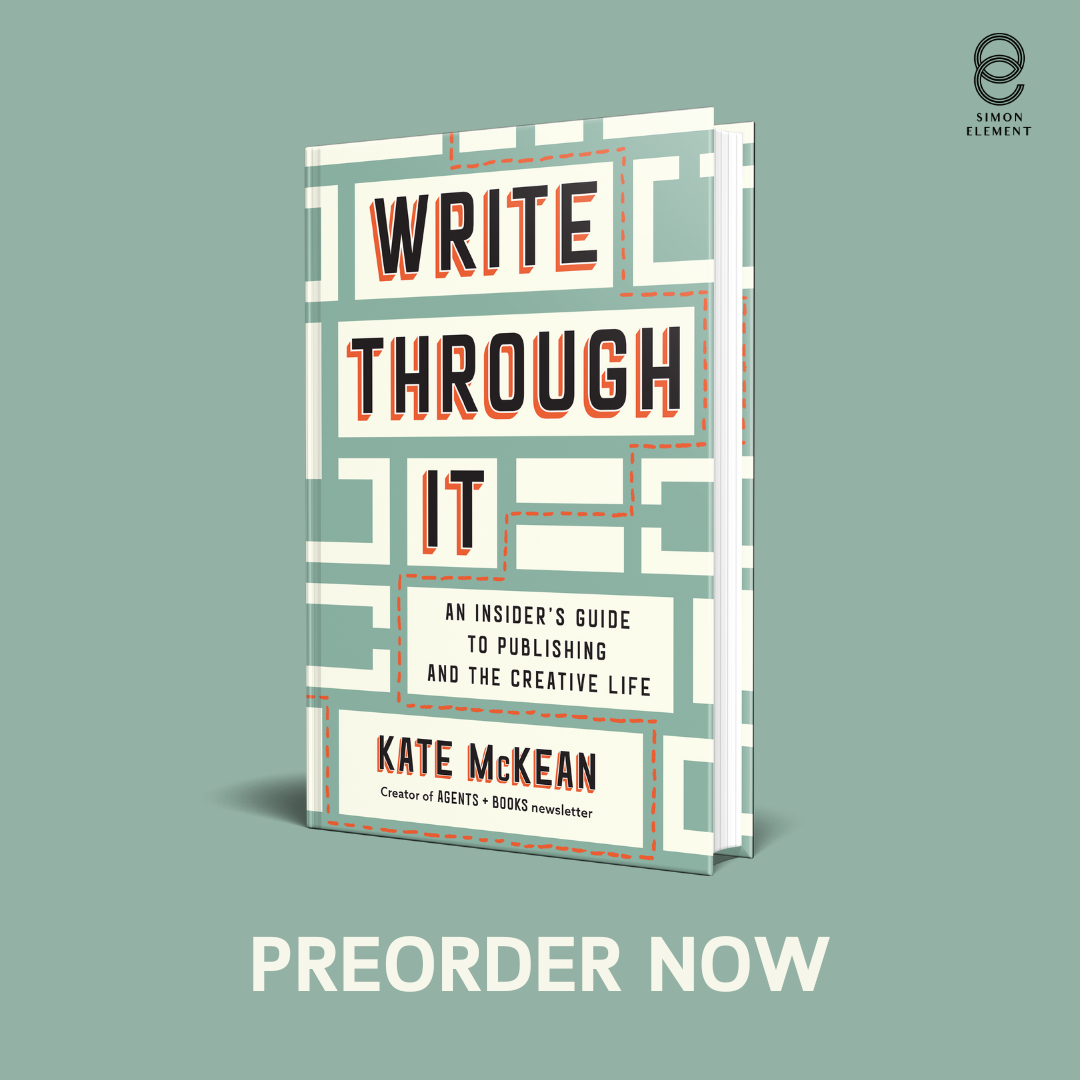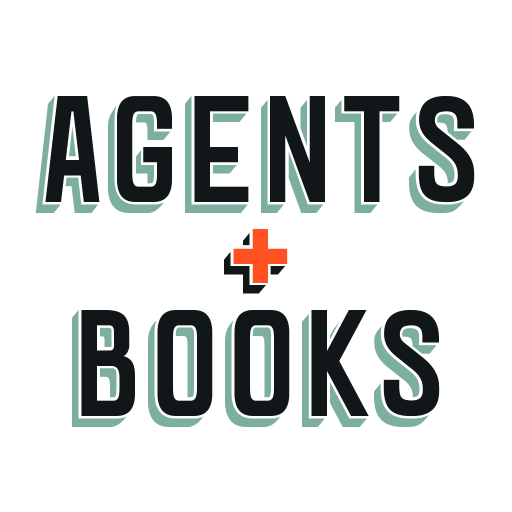It Should Not Be This Hard to Find an Agent
Except...... (And an Excerpt)

Hey friends!
It’s ONE WEEK until my book comes out!! There’s still time to preorder a copy from The Strand and I’ll sign it. You can preorder an unsigned copy here, too—or anywhere books are sold. If you’re in NYC, won’t you join me Saturday for my launch??

As I mentioned last week, I’m digging back in the archives to see what I said way back in 2019 (what a different world it was then!!!!!!) when I started this newsletter, to see if anything’s changed, anything needs updating, or if I was right all along. Today we’re tacking the actual finding of a literary agent and why it’s a huge fucking pain in the ass.
Because we know it is!!! There is no single, 100% reliable and up to date database of all the agents that you can just plug in “rom com” into and have it spit out a list of agents you can query. Wouldn’t it be great if that happened? Unfortunately, no one has made that database, and if they did, it would be a full time job to keep it updated. (And who’s going to pay that person’s salary? Not agents.) Many have tried to “disrupt” this space and…well…things are still rupt.
Why is it hard? Because your book is your book and it’s not like anyone else’s book. You know your book best, so you’re the best judge of who might also like it. I don’t know your book, so I can’t give you the exact information you need (i.e. I like historicals, but I don’t like ALL historicals). I could write 100,000 words on all kinds of books I like and it wouldn’t be enough. So, as an agent, I aim to put enough information out there so that it directs the majority of what I think I want to represent to me, without completely closing the door to serendipity. I don’t represent everything, and you don’t want me to, which is why I don’t have a just send me everything policy. (No one does.) Agents, careers, lists evolve and responsible agents who want good queries to come their way keep their submission areas and guidelines as up to date as possible, especially on their own websites. That’s just one thing we do, among the many other hundreds of tasks and responsibilities. My foremost job is to represent my clients. Not to make querying me as easy as humanly possible.
I recommend making a big messy list of names from reputable sources and narrowing that down to the core list of agents you want to query. You might keep a running (messy) list for months, jotting down a name you come across to check out later, and then right before you’re ready to query, doing a deep dive to see who you want to reach out to, who’s open or closed to submissions, who changed jobs, etc etc etc. Something will be inaccurate on your list and this is ok. Sending an agent women’s fiction when they only want rom coms will not get you blacklisted forever. Your list will be wide enough that any variance like this won’t totally tank your chances. (Thursday I will be writing more about the number of agents you can/should/shouldn’t/must/etc query, so stay tuned.1 ) In the meantime, here are the resources I recommend using to start your agent search. And shhhhhhhhhhh, don’t tell my publisher, but this is actually an excerpt from my book! (That’s why it doesn’t have any typos, lol.) A combination of these sources will provide the best information, and you should use your judgment where contradictions occur. I know that’s inexact! Unfortunately, this is the best we got.
Publishers Marketplace, PublishersMarketplace.com
This is a subscription-based website that costs $25 a month as of this writing, and is worth every penny, if even for a few months while you’re in an intense research period. You can even get a twenty-four-hour Quick Pass to check it out for $10. Don’t let the spare graphic design fool you— it’s an industry go-to when it comes to publishing news, contacts, and deals. Subscribe to their (free) newsletter, Publishers Lunch, or the paid version, Publishers Lunch Deluxe, and it will provide a wealth of publishing news and insight.
But for agent-finding purposes, navigate to the Deals section. Agents, authors, and editors announce new books this way, using the website’s specific format. The deal announcement for this book looked like this:
You’ll notice there, too, is a genre designation, next to Category. You can search the whole deal database, going back to 2000, by category and/ or keyword. You might look at all the books sold in How-To in the last few years (going back too far might not yield the most relevant results) and put those agents’ names down on your Big Messy List. You might look at other genre/topic designations to see if something else might be relevant. The agent or editor posting the deal chooses the category and results vary. Your How to Survive Climate Disaster book could be How-To, but it could also be Current Events. It’s OK to cast a wide net at this point because it’s a big, messy list.
Within a genre, especially larger ones like General Fiction or Mystery, you can search for keywords. Maybe your book is historical, and you want to target agents who do historical mysteries. Maybe you want an agent who knows a lot about vampire books. Search broadly and write it all down.
QueryTracker, querytracker.com
QueryTracker is a query management and research tool online. In its free version, you can research agents, make lists, track your submissions, and read comments others leave about that agent. (Gulp. And guys—I read these. I’m sorry it takes me so long to respond!) For $25 a year, you can get premium features such as an agent’s average rejection time or manuscript request rate as well as many other features. QueryTracker’s own user guide suggests you also double-check the information on their site, like agents’ chosen genres. All databases are only as good as the data.
Literary Marketplace, literarymarketplace.com
The LMP is a physical book you can find in most libraries and great for people who want a tactile research experience. It’s almost like the phone book for agents and publishers, if you remember phone books. There is an online component, but a subscription is required, and it’s very possible your library has that subscription too. Ask your trusty librarian for help accessing it. Published yearly (the 2023–24 edition is its eighty-fourth!), the print edition is only as accurate as the information they had at printing time. I would definitely suggest cross-referencing any information you find there with more current resources, but if you want to just leaf through and look at lists of names, this is how to do it. You can buy your own, but they cost around $500 each.
Manuscript Wish List (#mswl), manuscriptwishlist.com
This site, which started as a Tumblr hashtag back in 2013, and then turned into a website by a group of writers, editors, and agents, specifically focuses on what agents and editors want and do not want, as well as whatever fun facts agents and editors want to include about themselves. I actually use this website when making submission lists, either for specific information about editors or even just as a vibe check. If I have a dark fantasy novel, and that editor’s MSWL page is all unicorns and rainbows, they might not be the best fit for my project. It’s one of many resources I use, and you can use it that way too. Agents and editors can log in and edit this information at will, but there’s no telling how often they do that. (I have updated my profile a few times over the years, but not more than that.)
Association of American Literary Agents, aalitagents.org
This is the website of the governing body for literary agents. Not all agents are part of the AALA—they report almost five hundred members in their survey—but all member agents “must meet AALA’s professional qualifications and agree to adhere to its widely respected Canon of Ethics” and be approved by the Board of Directors. They might not be the right agent for you, but they aren’t going to be an outright scammer. This site has a searchable database, and agents submit this information. It is another resource to use to add to your big, messy list of agents.
Social Media
Who knows what social media will look like when this book is published? If it’s still around, agents will be on it. As you make your list, search for those agents on whatever platform you prefer. It’s likely agents will be on the text-based ones more often than the video-based ones, but I do know some agents who participate in BookTok. Regardless of the platform, you can get a sense of their personality (at least the public-facing one), what they talk about, maybe even what they are looking for. Not all agents are on social media, but a lot are.
Actual Books
Authors often thank their agents (and many others) on the acknowledgments page in the back of their book.2 You can sit down in front of your genre’s section at the library (or bookstore, but please don’t treat it like the library) and see who authors are thanking, add those names to your big, messy list, and research those agents further later. If you’re doing this later in your research, you’ll be familiar enough with a lot of agents to recognize them when the author just lists a name and doesn’t say “thanks to my agent.”
In-Person Events
Many authors want to go right to the source and talk to an agent face to face. Many have called an agent’s office requesting a meeting, but unfortunately, that’s not a thing anyone’s schedule will allow. The next best thing is a writers’ conference or other literary event. Many conferences offer pitch events (Writer’s Digest sponsors many) where you can meet and/or pitch agents directly and in person. I’ve met hundreds of authors this way. But I’ve offered representation to three clients at a conference, and two accepted. That’s not a great hit rate for any of us.
It’s OK to seek out an agent at a conference, whether that’s at the closing reception or a pitch event. It’s great to meet agents and learn they are just people who love books and not all-powerful beings that will bestow upon you the power of Publishing. It’s also very good practice to pitch an agent because it forces you to home in on what’s great about your book and practice talking about it confidently. But that ten minutes you get to sit down with an agent is not going to make too much of a difference as to whether they represent you or not.
Why? Because the point of books is reading them. Meeting authors is great, and their enthusiasm can be contagious. But in the end, it comes down to the book and if I can sell it or not. I can’t tell that in one ten-minute meeting. It’s a start, but I still need to read the materials.
What writers don’t realize is that meeting agents is only one tiny benefit of going to conferences. Besides that, conferences offer tremendous opportunities to learn about writing and publishing (often directly from agents), to meet and network with other writers, and to build or expand your professional (and/or social) community. Very few people walk out of a conference with an offer of representation in hand. But most, if not all, walk out with knowledge, contacts, or resources that get them closer to that goal.
If conferences are too expensive or not accessible to you, keep an eye out for virtual ones that may better line up with your schedule or needs, as well as ones that offer scholarships or reduced fees. You might also look for literary events in your community (free or ticketed) where local or visiting agents might be. I do not suggest pitching an agent your book while they’re trying to listen to a reading or enjoy an event, but it’s OK to network and meet people at these things, whether they’re agents or not. This is part of community building, and you never know where it’s going to lead. (Just don’t be creepy.)
What did you think?? That’s just a snippet of all the great things you’re going to find in WRITE THROUGH IT. I’ve got so many other exciting things coming up for this book launch—all month long—so stay tuned! I post things here, in Notes, on Bluesky, and Instagram!
XOXOXOX,
Kate





Comments ()